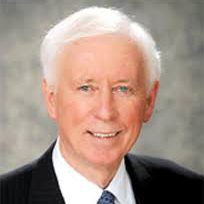2014 Global Health Forum in Taiwan
Delegates from the World Medical Association, lead by Dr. Xavier Deau, President of the World Medical Association (WMA), attended the 2014 Global Health Forum in Taiwan. It is a two-day event which began November 30 and which was joint hosted by the Ministry of Health and Welfare, the Ministry of Foreign Affairs and the Health Promotion Administration, Republic of China (Taiwan).
This years events included the efforts of global leaders in public health and sociology. The main theme has been set as “Healthy Society, Healthy People”. Speakers spoke on topics that included political economy of health, Post-2015 development agenda, healthy cities and healthy settings, tobacco endgame, and universal coverage.
The subjects included issues of noncommunible disease (NCD) and social determinants of health and how the 2013-2020 United Nations (UN) plan objectives can be reached. They were established by the UN in 2011 and endorsed by the World Health Assembly in 2013. They include:
To raise the priority accorded to the prevention and control of noncommunicable diseases in global, regional and national agendas and internationally agreed development goals, through strengthened international cooperation and advocacy.
To strengthen national capacity, leadership, governance, multisectoral action and partnerships to accelerate country response for the prevention and control of noncommunicable diseases.
To reduce modifiable risk factors for noncommunicable diseases and underlying social determinants through creation of health-promoting environments.
To strengthen and orient health systems to address the prevention and control of noncommunicable diseases and the underlying social determinants through people-centered primary health care and universal health coverage.
To promote and support national capacity for high-quality research and development for the prevention and control of noncommunicable diseases.
To monitor the trends and determinants of noncommunicable diseases and evaluate progress in their prevention and control.
The goals include:
- A 25% relative reduction in risk of premature mortality from cardiovascular diseases, cancer, diabetes, or chronic respiratory diseases.
- At least 10% relative reduction in the harmful use of alcohol, as appropriate, within the national context.
- A 10% relative reduction in prevalence of insufficient physical activity.
- A 30% relative reduction in mean population intake of salt/sodium.
- A 30% relative reduction in prevalence of current tobacco use in persons aged 15+ years.
- A 25% relative reduction in the prevalence of raised blood pressure or contains the prevalence of raised blood pressure, according to national circumstances.
- Halt the rise in diabetes and obesity.
- At least 50% of eligible people receive drug therapy and counseling (including glycemic control) to prevent heart attacks and strokes.
- An 80% availability of the affordable basic technologies and essential medicines, including generics, required to treat major noncommunicable diseases in both public and private facilities.
This event has been held annually since 2005. The attendance included an impressive list of 300 with 77 health experts from 31 nations.
The WMA attendees who were active participants in the forum include: Dr. Xavier Deau, President, Dr. Mukesh Hairkerwal, Board Chair, Dr. Margaret Mungherera, Immediate Past President, Dr. Cecil Wilson, Past President and Dr. Robert Wah, Council Member and American Medical Association (AMA) President.
Cecil Wilson, MD, MACP
WMA Past Presidents and Chairs Network (PPCN)

